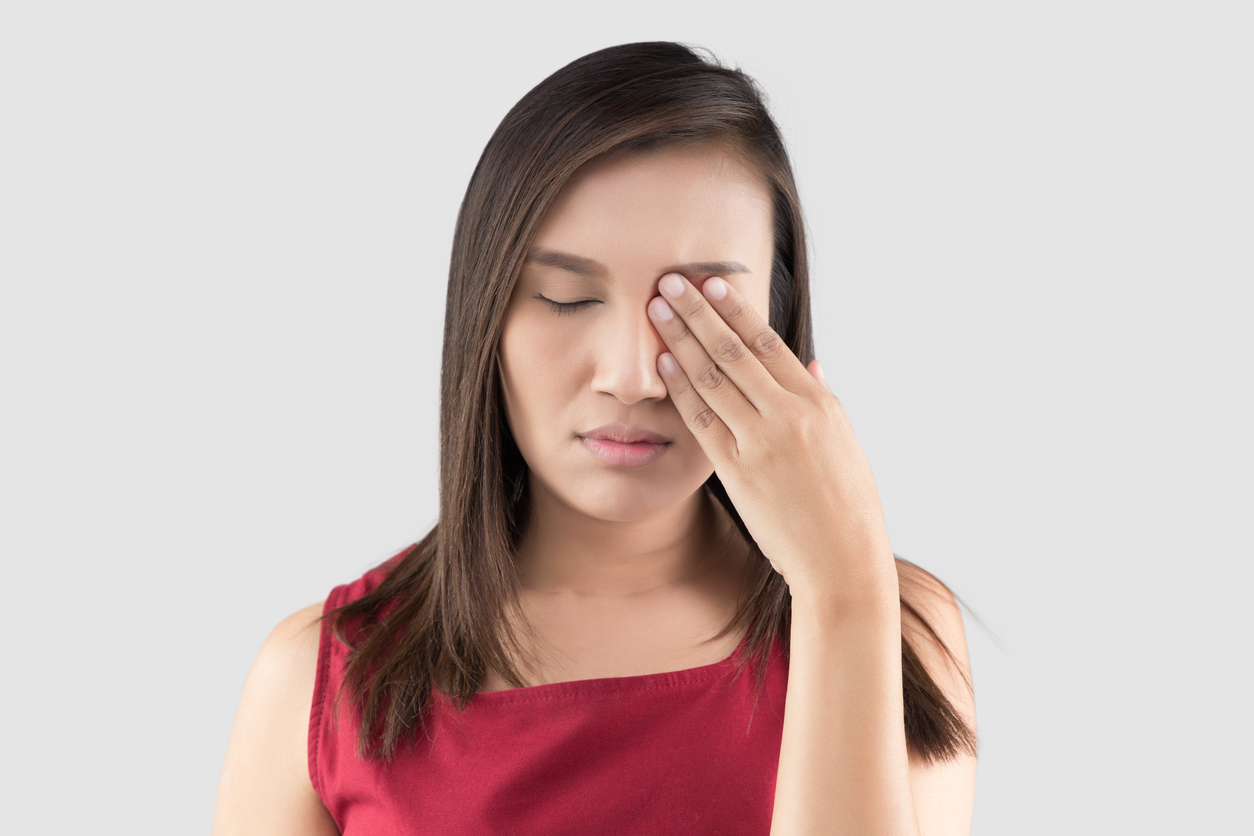Thyroid eye disease (also referred to as Grave’s disease or thyroid orbitopathy) is an autoimmune disease that affects one out of every 200 people. The disease is related to the thyroid gland. This is an important part of one’s body as the hormones secreted by it control the body’s metabolism. It also affects different structures within one’s eyes, including the eye muscles, orbital fat, and eyelids. Symptoms of thyroid eye disease begin slowly and can rapidly develop if untreated so getting medical attention as soon as possible is important. Some of the symptoms include eye irritation or dryness, eye pressure, redness, eyelid swelling, eyelid retraction, and bulging or protruding eyes to name just a few. One of the most uncomfortable symptoms is thyroid eye disease swelling as it can be painful and is visible to others.
In mild cases, thyroid eye disease swelling can be managed.
Thyroid Eye Disease Swelling Solutions
- Cold Compress. If you place a cold compress on the affected area, it can reduce some swelling. Be sure to apply a cloth or some sort of barrier between your skin and the cold compress so you are comfortable.
- Sunglasses. If possible (and practical) wear sunglasses to protect your eyes from squinting from the sun or any materials that may further irritate your eye.
- Artificial Tears. Run this by your medical provider first as this is something that will be placed in your eye. If you get a doctor’s approval, artificial tears may help with the dryness and ultimately help with your swelling. Dry, itchy eyes are difficult not to rub or touch so artificial tears may help.
- Sleep. Sleep on your back with your head elevated to reduce swelling and ensure you are not irritating your eyes by lying on your sides or stomach. Prop yourself up comfortably with a few pillows so you can get a restful night’s sleep while addressing the swelling.
- Quit Smoking. Studies have shown that those who smoke have more difficulties treating their thyroid eye disease and have worse outcomes. If you can, try and quit smoking as it can be detrimental to your overall health.
Dr. Taban and Taban MD
While the solutions above address mild cases of thyroid eye disease swelling, some experience more aggressive symptoms. If you are experiencing any of the symptoms listed above, set up an appointment with Dr. Taban at Taban MD to assess the severity of your thyroid eye disease. Dr. Taban is a trusted medical professional and oculoplastic surgeon in Beverly Hills. He has helped numerous patients who have had severe symptoms from thyroid eye disease through orbital decompression surgery. This is a minimally invasive procedure and often has great results for patients.
The treatment helps reduce the appearance of bulgy eyes by expanding the eye socket. This addresses numerous uncomfortable symptoms that accompany thyroid eye disease. The treatment for a patient with thyroid eye disease is multidisciplinary and involves an endocrinologist, thyroid surgeon, ophthalmologist, and oculoplastic surgeon. The underlying problem is the thyroid gland which must be treated in conjunction with any procedure to address the symptoms.
Dr. Taban is a board-certified surgeon with extensive experience and expertise in oculoplastic surgery. He is a skilled surgeon who has been educated at the nation’s top institutions, including the University of California, Los Angeles and the University of California, Irvine. Dr. Taban not only practices medicine, but he is active in the medical community. He is a professor at UCLA’s Jules Stein Eye Institute, has published numerous scholarly articles in the field, and has received many accolades for his work.

